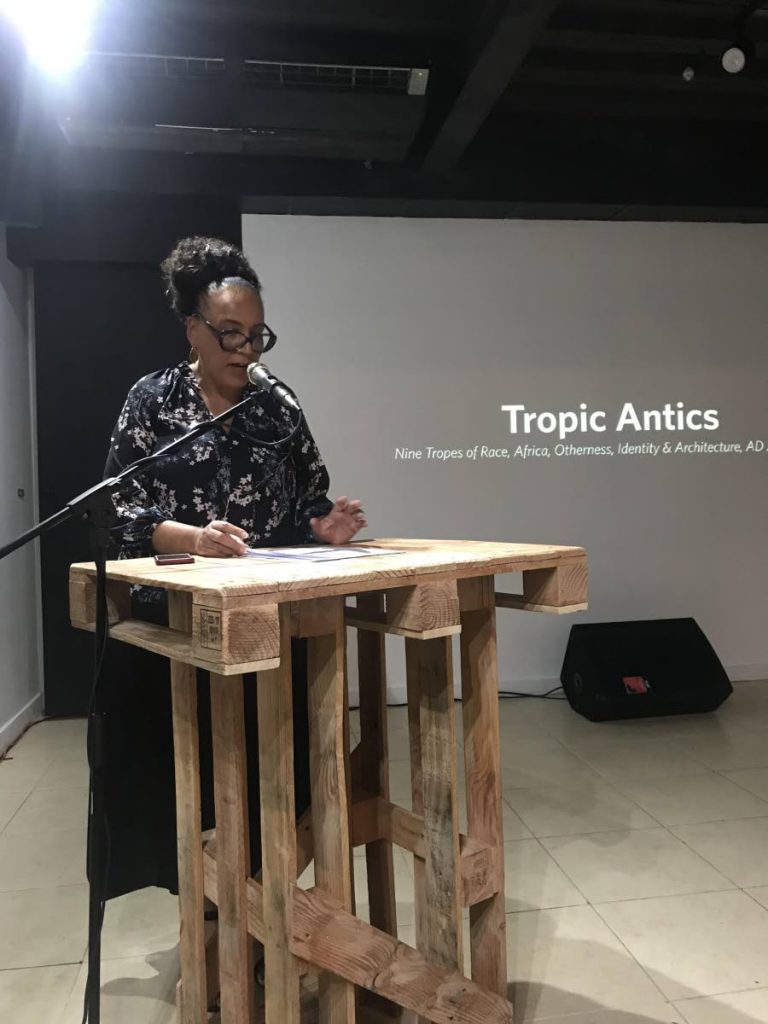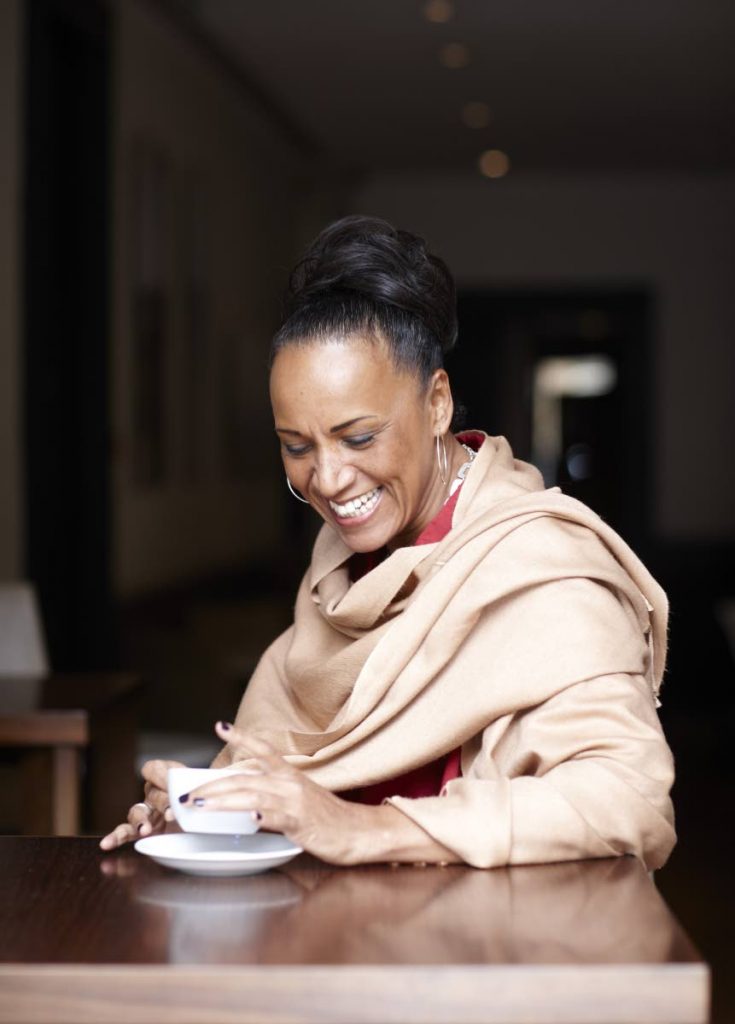Transforming Africa’s landscape

LISA ALLEN-AGOSTINI
“LIVE out of your imagination, not your history,” Prof Lesley Lokko tells her students. Lokko, a Ghanaian-Scottish architect, is a founder of the Graduate School of Architecture (GSA) at the University of Johannesburg, South Africa.
“It’s one of those sayings that is both empowering and dangerous since there is always a relationship between imagination and history,” she said in a lecture on June 1 in Newtown, Port of Spain. “Yet in the African context where the weight of history threatens every day to destroy you, it is a particularly powerful and challenging instruction. The very act of imagining an alternative future, a different way of life, different ways of seeing is also an act of resistance, sometimes even revolution.”
Lokko, who is also a bestselling fiction author, was in TT at the invitation of local architect Mark Raymond of the Collective for Caribbean Architecture and Urbanism (CCAU). Her talk at the Grundlos Kollektive art space, Cipriani Boulevard, was jointly presented by CCAU, the TT Institute of Architects and the GSA.
Tropic Antics, the lecture, looked at nine different binary tropes – punning on “tropics” and the word trope, which is a literary term for a word or notion that is used as shorthand for something else. Some of the tropes: Old vs new; African vs European; pupil vs teacher; tradition vs modernity. The 90-minute multimedia presentation included deeply-emotional, investigative videos Lokko made with students of the GSA.
In the three years since it was founded, the school has grown exponentially in enrolment. She started with 11 students.
“Today, three years later, there are 115 full-time postgraduate students in the GSA,” she said in the lecture. “We’re the biggest postgraduate school in Africa and, if things go according to plan – which they never do – by 2025, we will reach 600.”
In an interview at the Hilton Trinidad a few days after this lecture, Lokko put this surge into context.
“Particularly after the student protests of the last two years, there was a depth of rage in the student community; the government was completely taken aback, and it has produced a kind of political momentum the ‘Power’ generation cannot ignore,” she said.

The 2016 riots saw students blocking roads and shutting down campuses to protest high fees they said blocked black and poor students from participating in tertiary education. The #FeesMustFall movement called for decolonisation of the curriculum and campuses.
“It brought the government of South Africa back to the 1976 student riots [in Soweto], [the] Sharpeville [massacre] … South Africa has a long history of schoolchildren, if not university students, pushing through change. And in this generation, they know that right is on their side.
“They can’t ask for change in their curriculum, ask for decolonisation, ask for transformation and their lecturers say they’re not going to give it. That’s gone.” The problem is, she said, that “most of us don’t have any idea how to do it.” She teaches using Unit System Africa, a discursive educational style that incorporates student interests as objects of inquiry. “Transformation is embedded in the work that you do. It’s not something you add. It is the thing. If that student is a young, black, angry male student, or a female student, or a coloured student or an Indian student, their experience is directly the thing that you’re working with.” Lokko edited the book White Papers, Black Marks: Race, Culture, Architecture. She is also a writer; she has ten bestselling novels and her work has been translated into 15 languages.
During her visit Lokko gave a talk in St Clair at the Writers Centre, the home of the NGC Bocas Lit Fest, titled No More Than Three, Please. The event’s title was a reference to her experience as a fiction writer whose publishers asked her to keep her black characters to a minimum though her books were set in African cities with African protagonists. One Scottish writer called the books “exotic and erotic.”
She began writing fiction because she lived in South Africa after the end of apartheid and found herself in an unusual position as a mixed-race, European-educated professional.
“People would tell me things, especially after two or three glasses of wine, that I had no way to process: anything from the most bizarre sexual fantasies to guilt and shame and rage,” Lokko said in the interview.
She started a diary, which she then used as material. “I thought in my mind I was bringing together two genres, literary fiction and popular fiction, and telling a really powerful story about race and identity through it. My publisher thought I was writing sex and shopping novels.”
Though she is no longer actively writing fiction — she readily and gleefully admitted in the interview she did it for the money — Lokko has heard of Bocas and supports the benefits such festivals bring to writers and readers in regions like ours strung out in an archipelago. Regional architecture too needs such interventions, she said.
“Architecture has a professional identity when you practise and an academic identity when you teach, but there’s a third component, which is the lectures, the film series, the discussions, the debates, the seminars — the add-ons that really shape both of those two things but they need those two things to exist. So, when you have a very small architectural community like you have here, getting those three [circles] working in tandem is very important.” She praised the CCAU and Mark Raymond, whose brainchild it was, for developing this third component. Her visit here was the first in a series CCAU plans.
In an e-mail response to questions, Raymond explained, “Architectural culture in TT has come to revolve around a frequently tedious political debate concerning procurement and contracts, colonial architecture and heritage, or tentative flirtations with the contemporary art scene. This constitutes the discourse and it has not significantly evolved for decades.
“Lesley Lokko with her writing and teaching practice represents a new and critical voice which addresses new ways of looking at how we conceptualise architecture and the city beyond the tired and redundant image of the colonial and investigates how bold, creative strategies might be employed to transform our relationship to architectural and urban space. In particular she explores how this transformation might play out in the emergent urbanisation of Africa and also the diaspora — including the Caribbean.”
Lokko said in the interview, “Can we not see the African diaspora as an important part of that third circle? We share 99 per cent of the same ideas.”


Comments
"Transforming Africa’s landscape"